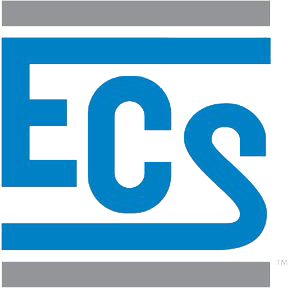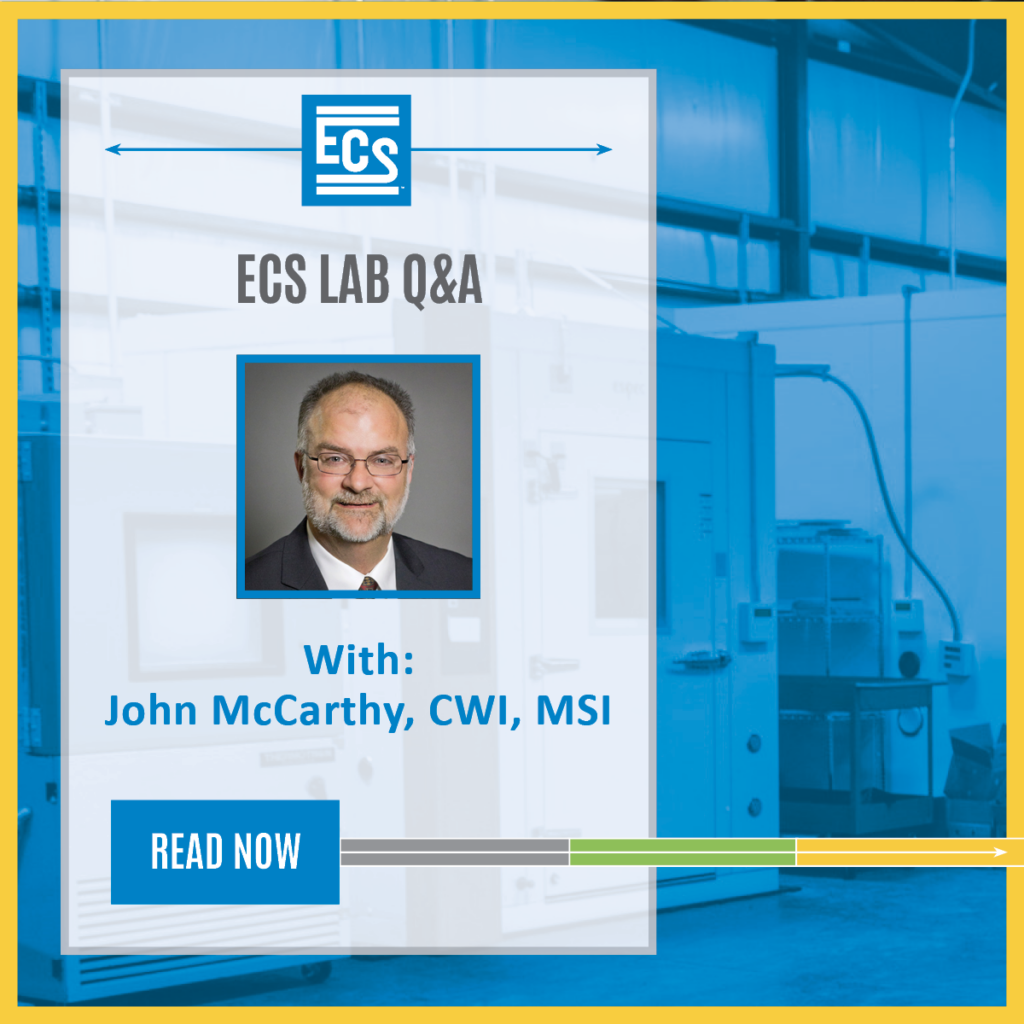Q: What capabilities do ECS laboratory testing labs have?
A: At the basic level, local ECS offices have a soils laboratory to support the geotechnical and construction materials testing (CMT) departments that perform aggregate, concrete and soil testing. Local office leadership decides on the scope of their laboratory’s accreditation and service offerings beyond the basic testing.
Additional tests include:
- bituminous/asphalt lab tests
- extraction and concrete or shotcrete core testing
- advanced soil tests
- aggregate and specific tests related to state, region and office-specific factors
For example, some tests for Green Bay, WI, you might not see in Houston, TX, because of the specificity of external factors such as weather or climate differences.
Q: What types of projects would the labs be used for?
A: Geotechnical site evaluations, CMT testing projects, as well as special inspection projects. Almost every project within our engineering and CMT departments require classification or other index tests to define soil parameters. Only a few project types would not require laboratory work, such as structural evaluations for steel frames, building-enclosure testing for windows, roofing or environmental site assessments. However, from time to time, other ECS service lines, such as environmental and facilities require laboratory testing from our materials laboratories.
Q: What types of clients do we typically perform lab-testing work for?
A: ECS can perform work for almost any client. Our clients range from developers, general contractors, architects, structural engineers, civil engineers and local authorities. We also work with large corporations, homeowner associations and individual property owners. Our clients include local firms and individuals around each office location and regional and national clients.
Q: What training or certifications are required of our lab technicians?
A: To comply with the requirements of project specifications and local authorities, ECS has developed several policies that require accreditation and certification of our quality systems, laboratories, supervisors, field technicians and lab technicians. All technicians must obtain an external or internal certification to perform our standard work.
To support this effort, ECS has developed an internal certification program that covers the American Society for Testing and Materials (ASTM) and the American Association of State Highway and Transportation Officials (AASHTO), test methods. All technicians must complete a competency evaluation covering all their test methods every two years. These competency evaluations cover other methods that might not have been on the exam but are important to confirm our ability to perform the test methods following the standards.
Q: What training or certifications are required of our lab managers and supervisors?
A: The training requirements for our lab managers, team leaders, field service managers and non-engineers (those without EI or PE licenses) and CMT department managers are slightly different from those for our lab technicians.
Lab managers must have an external ASTM, AASHTO or American Concrete Institute (ACI) certification in the tests they supervise. Non-engineer personnel are required to have external certifications in both soil and concrete as well as advanced certifications. Like the technicians, they must perform a competency exam every three years for every test method they’re involved in.
Although the technicians perform most of the tests, lab managers and supervisors also conduct tests and must be able to evaluate the test methods the technicians use. Additionally, supervisors of field technicians must be competent in the test methods they are training or supervising.
Q: How long does a lab technician’s certification remain valid?
A: Lab certifications typically last four to five years. ACI uses the five-year turnaround for their certifications, as does ASTM and AASHTO. ECS internal certifications last five years and only apply to work performed with ECS.
Q: How many lab locations does ECS have within the company?
A: We currently have 62 labs that are accredited, certified or on their way to being accredited. We’re constantly expanding with a need for adding labs.
Q: Who accredits our laboratories? Under what law, act or regulation is a lab required to be accredited?
A: We’re accredited by various sources, and the choice of accreditation provider is based on the jurisdictional requirements for that location. Each branch must investigate its market and determine the most suitable accreditation provider.
ECS uses nationally recognized accreditation providers such as AASHTO, Construction Materials Engineering Council (CMEC), American Association for Laboratory Accreditation (A2LA) and the US Army Corp of Engineers (USACE) for validation and certification, or accreditation from associations like Washington Area Council of Engineering Laboratories (WACEL) and state departments of transportation.
As ECS expands west, the quality team will evaluate new sources of accreditation. Each state or local authority can and does establish requirements for these accreditations. However, most project-design documents and contracts reference various ASTM standards, assuming the testing and inspection personnel are certified. We require these certifications and accreditations as part of our overall quality assurance and risk-management plans when the local authority does not.
Q: How does a lab get accredited and how long does the accreditation last?
A: Each accreditation provider is different, but all assessments begin with a request where we state which standards and test methods in which we want to become accredited.
Each office/lab must maintain a quality management system (QMS). At ECS, corporate services supplies each office with a model Volume I that is updated and reviewed by an outside source every two years. This QMS contains all the requirements we must adhere to earn the accreditations offices require.
Each office is expected to maintain its QMS as a Volume II. This manual contains the procedures to satisfy the requirements in Volume I and the standards that the local office is seeking accreditation. The assessments typically take one to three days, depending on the number of standards sought. Once complete, we must respond to anything we may have omitted during the assessment.
Accreditations are continuous and do not expire unless we do not meet expected performance standards. We must request and maintain our assessments on a schedule determined by the provider.
Q: What is involved in maintaining accreditation?
A: Maintaining the accreditation requires following the procedures outlined in the corporate and office QMS, maintaining our training and competency records for the test methods performed, supporting our internal and external certification and participating in a proficiency sample program (PSP). We confirm this with annual audits and bi-annual assessments of laboratory performance and record keeping.
Q: Can lab work be shared across laboratory locations for a particular test, equipment or responsiveness?
A: Absolutely! ECS has a system that allows us to assign work to subordinate labs. We can send tests to another accredited lab, allowing load-level balance on projects across the company. This helps us get work done faster on larger projects.
Q: ECS prioritizes safety; what safety measures must be taken to perform work safely and what should a safe lab entail?
A: We move heavy objects and equipment in the lab daily, so we must wear personal protective equipment (PPE). This includes safety shoes, high-temperature gloves, rugged pants and shirts, safety glasses, safety visors, aprons and breath masks.
The lab environment differs from a construction site; we are exposed to other dangers. It is important to be safe in every lab. Each lab has different services and must develop its standards for safe working.

